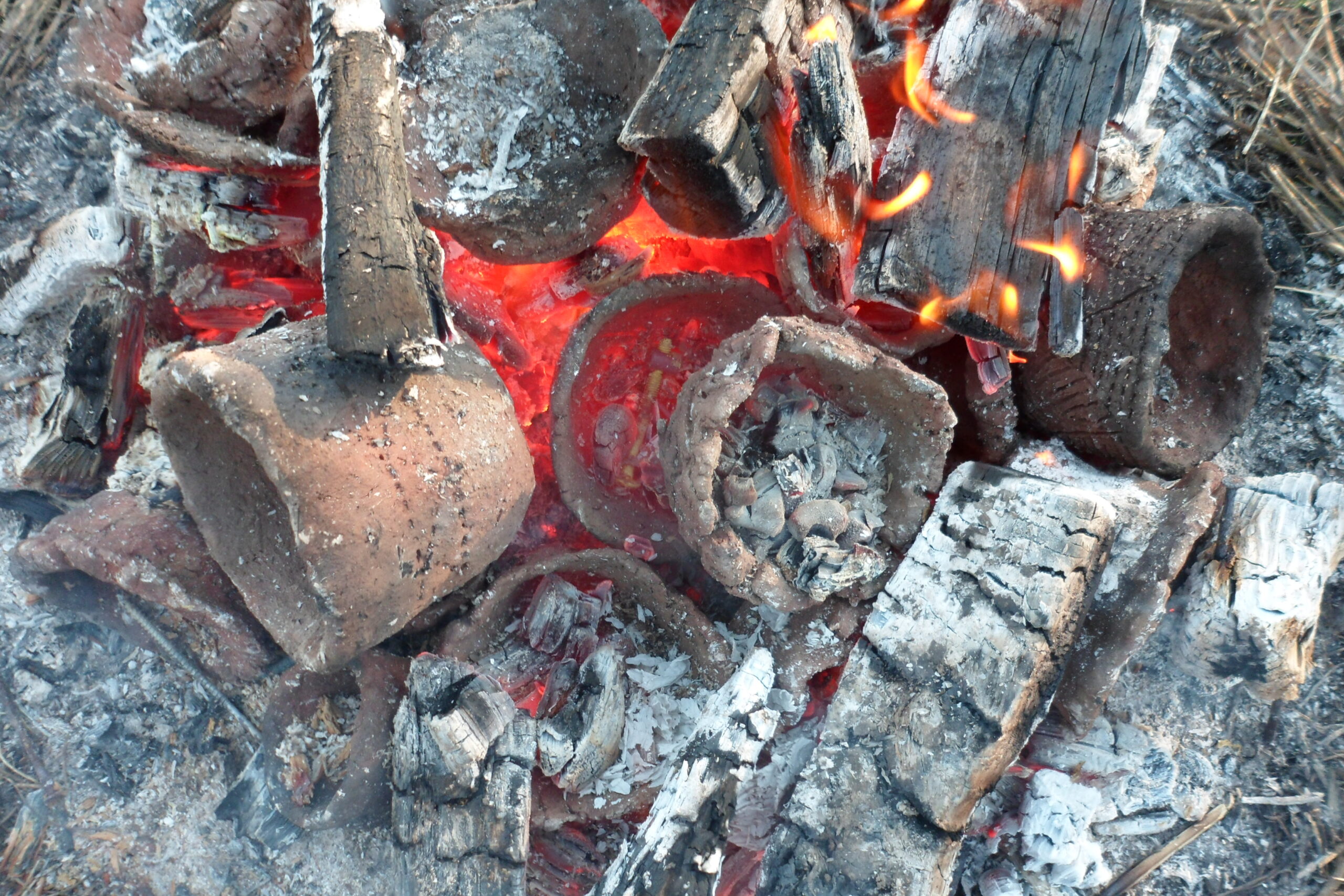Kingston Deverill Hoard
In February 2005 a copper alloy trulleus (a form of saucepan) was discovered by a metal detectorist near Kingston Deverill, Wiltshire. It was reported to the Wiltshire Finds Liaison Officer who commissioned Wessex Archaeology to excavate the spot. This revealed a pit within which were two more trullei, two copper alloy strainer bowls and a small quantity of pottery and animal bone.
This five-piece vessel hoard is an outstanding example of Roman metalwork. The strainers were used to heat and remove the sediment from wine, whilst the trullei were used to heat liquids. One trulleus has a maker’s stamp visible on the handle, ‘P.CIPI POLIBI’. This is the abbreviated name of Publius Cipius Polybius who was a well-known maker of trullei near Pompeii at the end of the 1st century AD.
The hoard represents a combination of native and Roman traditions. The trullei were Roman products and part of the equipment carried by soldiers. The wine strainers are found in native hoards and important late Iron Age and early Roman burials.
It is unclear why it was buried. A temple nearby on Cold Kitchen Hill could suggest the hoard was an offering to the gods. However it was also buried close to a Roman road which might indicate it was hidden for safe keeping by a traveller who never returned to collect it.
Acquired with the support of the V & A Purchase Grant Fund and the Art Fund.


